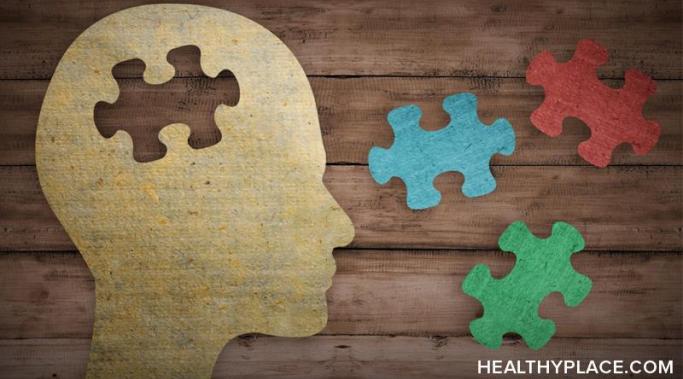It's important to manage expectations in recovery because you don't want to strive for the impossible goal of simply not having a mental illness anymore. The truth is, recovery just doesn't work that way. The vast majority of us can't get rid of our mental illness entirely, but we can find ways to cope with it and reduce its impact on our lives. Recovery is about working with your brain to live the most functional, enjoyable life possible.
Mental Health - Recovering from Mental Illness
Most of us resist mental health recovery at some point because mental illness has become our identity. Who will we be without mental illness? This series of posts will address some different reasons for resistance, starting with a personal battle of mine: staying sick because it has become my identity.
No one wants to see their child develop mental health issues or suffer in any way. Oftentimes parents with mental Illness are asked if we fear we'll pass our illness down to our children. I've always thought there are worse things to fear. Still, I can't ignore genetics, and I know my daughter is at a higher risk of developing a mental illness because I have schizoaffective disorder. So I wonder, is there a way to try to prevent it from happening? Or is my time better spent preparing her for the possibility?
Having a mental health recovery-friendly home is important because an important piece of mental illness recovery is feeling safe -- and if you're lucky -- relaxed. We can't always control our environment and surroundings, but I do think there are ways to arrange and organize your home to aid your mental health recovery. Here are seven ways to make your home more mental health recovery-friendly. They are not major changes, just simple ideas that might make a difference.
Nothing is better than a snow day - nowhere to go, nothing in particular to do. Do I catch up on tasks around the house or go back to bed? My Keurig is calling. I dump a bunch of sugar in my tea and take a seat by the window. Our street is lost in the snow. The outside world can wait. My day is free and full of possibilities. Time for a little extra self-care. Spending a day at home can be a great way to recharge. Here are four activities I did during the snow storm today.
My psychosis story is a huge part of my life. I have experienced hallucinations for as long as I can remember. As a teenager and young adult, finding explanations for what I was seeing and hearing became my quest.
My mental illness recovery is important to me, now more than ever, because of my daughter. I have been in mental illness recovery since my early 20s, long before I ever thought I'd be a mom. When my husband and I found out we were expecting, we were ecstatic, but I also felt overwhelmed. There is no turning back from this awesome responsibility. Nothing would ever be the same. My daughter is now two-and-a-half, and it's like I can't even remember what life was like without her. There's so much I want to show her and teach her, but I have to be mentally healthy and well to do that. Here are four reasons my daughter motivates me to make my mental illness recovery important.
There are benefits to anxiety although my anxiety is debilitating at times. It prevents me from doing the things I want and should do. Some days it takes a lot of courage just to leave the house. Anxiety is a huge part of my life, and it's really difficult to think there could be anything positive about it. However, there are a few benefits to anxiety, and I hope this article can shed just a tiny bit of light in the darkness of those who struggle with it.
When I was a teenager, mental illness recovery wasn't a thought in my mind. I already had my life planned out. I would attend music school and after graduation, I would audition for a military band. Things didn't go as planned when I was diagnosed with schizoaffective disorder.
Breakthrough symptoms caused by mental illness can really hinder your progress towards goals; however, reaching your goals is not impossible. Stress exasperates mental illness symptoms, but that doesn't mean you should give up. Understanding your symptoms as well as your limits can be crucial to your success.









